Deep Throat was filmed in August 1993, more than a year after the production of The Pilot in March 1993. In a way, Deep Throat feels like the first proper episode of the show’s first season, even carrying the production number 1×01. It cements a lot of the themes and ideas suggested in The Pilot, more firmly establishing arcs and characters. Indeed, The Pilot ended with a glimpse at the massive government conspiracy surrounding encounters with alien life forms, but Deep Throat serves to demonstrate just how deep that conspiracy goes.
The episode builds on countless ideas and conspiracy theories, delving into the popular suggestion that the United States military has been reverse-engineering alien technology for its own purposes. This suggests that Mulder isn’t just dealing with modern interactions between aliens and humanity, he’s digging into something that is rooted far deeper. As the eponymous informant teases him at the end of the episode, “Mr. Mulder, they’ve been here for a very long time.”
It’s perhaps interesting that Mulder’s informant actually plays a relatively minor role here. He pops up once at the start of the episode and once at the end, with Mulder and Scully carrying the case by themselves for the rest of the episode’s runtime. Indeed, far from serving as a helpful advisor or a friend to point Mulder in the right direction, Deep Throat seems to try to warn him off. “Leave this case alone Agent Mulder,” the character warns Mulder, in his first line of spoken dialogue. “I came here to give you some valuable advice. You are exposing yourself and Agent Scully to unnecessary risk, I advise you to drop the case.”
Mulder, of course, ignores this advice and the whole episode builds from that, but it’s a fascinating little scene. It establishes that Deep Throat isn’t an altruistic and completely trustworthy advisor, long before it becomes a plot point in E.B.E. The character very clearly has his own agenda, and the show suggests that we shouldn’t take him at his word. Perhaps reflecting some of the more cynical accusations about the motivations of the historical Deep Throat, The X-Files establishes itself as so cynical that we can’t even take the word of a gentle old whistle-blower at face value.
Why doesn’t Deep Throat want Mulder sniffing around this case? He argues that it runs the risk of attracting too much attention. “You have much work to do Agent Mulder,” he advises. “Don’t jeopardise the future of your own efforts.” Of course, the show invites us to question his motivation. It’s fitting that the credits sequence débuts here, that “Trust No One” appears shortly before the introduction of what should be one of the more trustworthy characters on the show. Nothing is as it seems, and establishing that paranoia so quickly is what makes the first season of The X-Files so successful.
It is, of course, possible to intuit any number of motivations for Deep Throat, especially with the benefit of hindsight. We’ll know that Deep Throat is relatively okay with Mulder poking around biological experiments like Eve and The Erlenmeyer Flask. However, Deep Throat tends to get a bit skittish when alien technology is involved, as seen here and in E.B.E. So what is the root of this inconsistency? It’s clear that not all information is equally “fair game“?
Does Deep Throat have a moral objection to biological experimentation on humans? Or does he believe that the military has a right to develop advanced technology that doesn’t extend to biological research? Or is it possible, as has been argued by Anthony Leong, that Deep Throat’s role in the sinister cabal is to oversee the recovery and application of this advanced technology? If so, it makes sense that he’d want to keep Mulder away. You don’t crap in your own backyard, after all.
Whatever the reason, it is clear that Deep Throat is not an altruistic actor in this drama, despite his benign appearance and the fact that Jerry Hardin does such a wonderful job playing a remorseful old man. Of course, the use of the name Deep Throat (which isn’t mentioned on-screen until The Erlenmeyer Flask) points to the show’s roots. The X-Files is anchored in what might be described as post-Watergate paranoia, a deep frustration with a government that is unwilling to trust its people.
Carter himself acknowledges that he grew up in the shadow of Watergate:
“I was about 15 or 16 when Watergate happened and I think that ruined me forever as far as my belief in institutions and in authority and agendas of government,” he said. “Watergate really opened my eyes to the corruption present in the system.”
You can see that influence in the episode. Mulder and Scully – both of an age where they would remember the Watergate scandal – are shown to be far more hostile and threatened by the government’s research than the two kids at the airbase. Emil and Ladonna are clearly too young to remember the Watergate scandal, and are clearly much more trusting of the authorities and the government. They acknowledge the landmines and the patrols on the base, but it’s nothing unusual to them.
“You know,” Emil begins to explain, over some late-night snacks, “we go, we kinda, kick back and listen to some tunes and… er… watch the air show.” He explains that apparently the kids go down to the base regularly. A mutual friend showed them the hole in the fence. The two seem to know that the army is testing and developing weapons, but they don’t seem upset by it. In fact, Ladonna seems quite enthused. “Oh, one time they dropped these bombs, wooah!” There’s a degree of trust and faith there that Mulder and Scully find hard to embrace.
Indeed, Mulder suggests that the army actually tolerates the kids on the base. “I don’t think it was those kids they were chasing away from the base last night,” he tells Scully, “I think it was us.” The air force staff can identify the kids eat with Mulder and Scully, but the teenagers seem to be ignored. It’s the more cynical older generation that the government needs to be wary of, the people who are old enough to remember the betrayal of Watergate.
Of course, The X-Files suggests that we’re all somehow complicit, that everybody is too trusting. Watergate was an obvious (and admitted) influence on Carter, and the production team were fond of All the Presidents’ Men. So it’s interesting that the reporter character here turns out to be a rat. Indeed, over the course of the nine years of The X-Files, we very rarely come across those sorts of archetypal crusading journalists. The closest thing the show has to Woodward and Bernstein would be the Lone Gunmen, three lonely nerds toiling away in an obscure basement rather than working at The Washington Post. Damn, The X-Files can be cynical sometimes.
Deep Throat also cements the ties to American UFO lore, particularly around government conspiracies. The Pilot obviously dealt with government cover-ups of alien abductions, but Deep Throat delves into the conspiracy theories surrounding things like Roswell and the Men in Black. In a very nice touch, the alien ship that Mulder catches a glimpse of is very clearly modelled on the Eye of Providence, a cornerstone of American conspiracy theories and even included on the dollar bill.
However, the smartest thing that Deep Throat does is to acknowledge that there are simply some things beyond comprehension – that we do not have all the necessary information to fill in the blanks. When Mulder tries figure out what has happened to the air force officers, he suggests that they were using technology that was – quite simply – beyond us. As he tells Scully:
I think that men like Colonel Budahas are physiologically incapable of dealing with the stress of flying the aircraft we saw. Or doing those manoeuvres, at those speeds. I mean we’re talking about a technology that is so sensitive and advanced, that it’s taken almost fifty years to make it work. UFO technology, Scully.
In a way, that’s a pretty accurate metaphor for the show’s somewhat jumbled mythology. It doesn’t quite redeem the fact that a lot of it ends up being intentionally frustratingly confusing nonsense, but Carter does an excellent job giving his government conspiracy a sense of scale.
As we start peeling the layers of the onion, The X-Files will give us a sense of a conspiracy that is improbably vast and almost impossibly powerful. To comprehend the sheer scope of that conspiracy’s influence and grasp is to invite madness. While The X-Files certainly bungles the landing, there’s no denying that Carter and his team of writers do give everything an impressive sense of scale. Like a blind man groping an elephant, we only catch a small section of the larger picture at any given moment, and trying to piece it together is something confusing and almost horrifying.
And Deep Throat touches on a theme that would be developed quite well over the coming seasons. Mulder’s belief in aliens is akin to his own religion. At the end, Deep Throat asks, “Mr. Mulder, why are those like yourself, who believe in the existence of extra terrestrial life on this earth, not dissuaded by all the evidence to the contrary?” Mulder can only offer wordplay as a reply. “Because, all the evidence to the contrary, is not entirely dissuasive.”
The poster on Mulder’s wall reads “I want to believe”, and it’s clear that Mulder’s alien mythology is his own faith – it’s that great big reason that he chooses to believe in, despite any evidence to the contrary and against all odds. I liked the arc in the fourth season where the show chipped away at Mulder’s belief, making a compelling argument that his belief in little green men is actually easier than facing the reality of life as it is.
Truth be told, I think that Mulder’s loss-of-faith character arc arrived about two seasons too late. It is, after all, hard to deny alien life following the events of Colony and Endgame. However, I think it’s a vital part of Mulder’s character. And that part is suggested here. There is a rational explanation for all this. Unlike some of the show’s later episodes, Deep Throat doesn’t need aliens to work. These pilots could just be suffering after using an advanced human-made craft. Deep Throat is one of the few episodes of the show that could fit the framework later suggested by Gethsemane.
“People see what they want to see,” the reporter states, when questioned about the sightings of alien craft. Of course, he has a reason to say that, but the show is careful to give Scully a tenable position. She doesn’t deny anything that she has seen. She just refuses to make the evidence fit some pre-determined theory. “Just because I can’t explain it,” she argues, “doesn’t mean I’m gonna believe they were UFOs.”
In being willing to modify and update her theories to match the existing evidence, rather than vice versa, Scully seems the more rational of the duo. Indeed, her end-of-episode report even includes the term “unidentified flying objects”, but used without the suggestion that they objects must be alien or must be extraterrestrial. They are just objects that have not been identified, flying. Deep Throat finds a way for Scully to work within the concept of the show.
Of course, this is a Chris Carter script. So some of the dialogue feels a little clunky. At one point, presumably for any viewers who missed The Pilot, Scully provides some handy awkward exposition to bring everybody up to speed on what The X-Files is actually about. “I don’t get it Mulder. Does this have something to do with an X-File? I thought you only liked those… eh… paranormal type cases. Am I missing something here?” Anderson does the best she can with the line, but it’s still clunky.
Later on, we get some ham-fisted attempt at moral debate from the duo, which reads as awkwardly as it sounds:
Did you ever stop to think that what we saw was simply an experimental plane. Like the stealth bomber or, this Aurora Project. Doesn’t the government have a right and a responsibility, to protect it’s secrets?
Yes, but at what cost, when does the human cost become too high for the building of a better machine?
Look, these are questions we have no business asking.
That’s not the way that people talk to one another, and Carter demonstrates that he was never the strongest writer on the show’s staff, even during the early years. The character dialogue and dynamics in Squeeze feel far more organic and natural than most of the work in The Pilot and Deep Throat.
The human element that works best in Deep Throat is the Budahas family drama, with the Colonel snatched away from his family in broad daylight, and his wife unable to find any trace of him. Budahas seems literally lost within the bureaucracy, and there’s no right combination of digits his wife can hit on the phone to bring him home. More than any sinister plot, it’s this sheer apathy that is most compelling.
The sight of the armed team breaking into a family house (the same house that would appear in Millennium) is effective, but there’s something more powerful about the fact that the government could just make Budahas disappear without any trace and without any need to justify itself. The X-Files really tapped into the paranoia after the Cold War, and part of that paranoia was the belief that the tools that had been used to fight the enemy might so easily be turned against the domestic population. The fact that everything was outwardly fine and that there was no looming threat just allowed that fear to fester in the shadows.
In many ways, Deep Throat serves as the second part of the show’s pilot. It develops the themes suggested in the first episode, and hints at a much deeper and broader government cover-up than the Cigarette-Smoking Man brought to The Pilot. The first two episodes, taken as a whole, lay a superb foundation for the show to come.
You might be interested in our other reviews of the first season of The X-Files:
- The Pilot
- Deep Throat
- Squeeze
- Conduit
- The Jersey Devil
- Shadows
- Ghost in the Machine
- Ice
- Space
- Fallen Angel
- Eve
- Fire
- Beyond the Sea
- Gender Bender
- Lazarus
- Young at Heart
- E.B.E.
- Miracle Man
- Shapes
- Darkness Falls
- Tooms
- Born Again
- Roland
- The Erlenmeyer Flask
Filed under: The X-Files | Tagged: All the President's Men, Barry Sussman, Bob Woodward, Central Intelligence Agency, Deep Throat, Erlenmeyer Flask, Fox Mulder, James Franco, Jerry Hardin, Lone Gunmen, mulder, New Mexico, nixon, Paranormal, richard nixon, roswell, scully, Seth Green, United States, Washington Post, Watergate Scandal, white house, X-File, x-files |















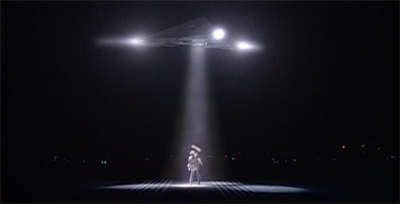
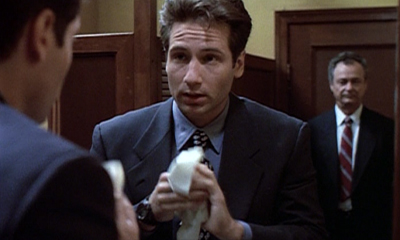
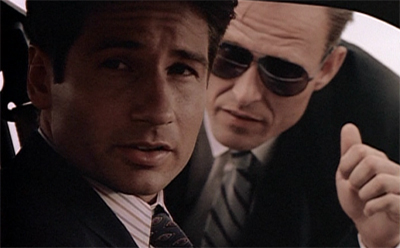
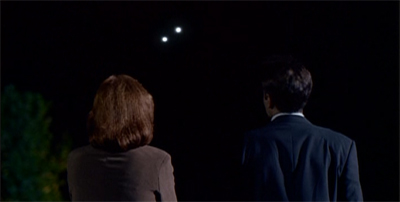
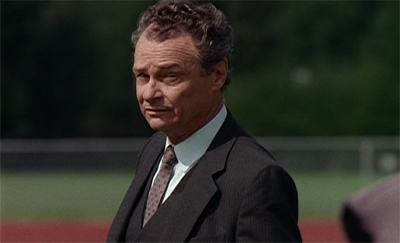







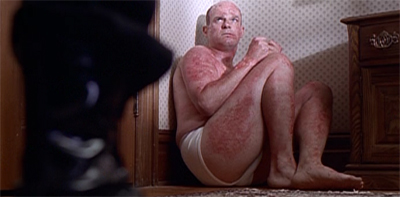





Another movie I am anxiously looking forward to. This was a pivotal part of my high school years. Although it took me quite some time to catch up on the series for I was starting high school in 1998, coming in midway didn’t seem a big deal, but of course their were gaps in incidents and stuff. For some reason, I missed the entire last season and being a motherly sort of lady and always rooting for Scully nd Mulder to hook up, I just watched the last season here in the past year to find out what happened to William. Though the entire series opened my eyes, my mind, and my heart to things outside my little world, it has also left many, many questions, within the series and out that I am sure we will never really have answers to. We must continue to keep searching and believing we will find them. I know, as that iconic poater in Mulder’s office states and that I shall never forget ‘the truth is out there’.
Thank you for another fine review. Have a good oneツ
Thanks!
Hey Darren I’m a huge fan of your work, but I notice a minor mistake you made on this page, your season 1 recap page and your X-files book.
You say the pilot filmed in 1992. Every other source I’ve seen says the pilot filmed in March 1993. This on both Wikipedia and imdb pages for the episode and it’s in Chris Knowles X-files book. Now of course the internet like always could be wrong and maybe you have information I don’t, but every source I check says 1993.
Side not last year you floated the idea taking on Buffy the vampire slayer after you finish Star Trek. I really hope you do because I frankly find a lot tv review shows both written and podcast form very shallow. Buffy is a show that needs a deep analytic dive and that’s the thing I love about your site.
Thanks very much! Corrected!